On the south-eastern edge of Addis Abeba, Gelan Gura woke up slowly last week. The dawn silence lingers, broken only by children scuffing gravel, a clang from a workshop, and the hush of voices seeping out of windowless rooms.
Low warehouses and factory fences sprawl across the plain, interrupted by neat lines of prefabricated apartment blocks, concrete slabs four storeys high, their grey faces already streaked and tired.
These flats, built by Ovid Construction Plc, a 15 minutes walk from the Industrial Parks Development Corporation (IPDC) zone, are the fresh start promised to thousands of families uprooted from inner-city neighbourhoods such as Casanchis.
Eyuel Dias, 60, leaned on crutches at the doorway of one block, watching children chase pebbles. He shares a 36Sqm flat with his wife and four children and pays 70 Br a month, which city officials call a subsidised rent.
The city administration set that figure in June after discovering most new tenants could not meet the earlier list. It was 70 Br for a one-bedroom, 100 for two, and 130 for three. When the first residents arrived last October, they were told to settle six months of back rent.
Residents found the new rental fees, which city officials had thought affordable, to be beyond their means. A town hall meeting they had recently turned out to be an emotional rollercoaster for both the residents and the officials attending the meeting. The arrears were later waived, the monthly fee was reduced, and in some cases, residents who could prove they had no regular income were exempt from rent.
But in practice, some households still hand over as much as 1,000 Br, their rate decided by emplyment status determined by an opaque residents’ committee.
Though the condo is damp and the windows leak during rainy months, Eyuel is still grateful for the improved housing he was given. He survives on a civil-service pension of 4,600 Br. More than half disappears into utility bills; water was meant to be subsidized, yet two invoices – 1,500 Br one month, 1,000 the next – have already arrived. Both sit unpaid.
“There is no contract,” he shrugged. “We still pay the full amount out of fear.”
Whatever is left buys food, though often not enough. Friends or relatives top him up with small transfers that vanish within days.
“If I were in a better place, I would be off these crutches by now,” he said.
A stroke and diabetes slowed him years ago. In Casanchis, he lived a street away from a diabetes clinic; now, the nearest hospital trip is a costly luxury. Public buses pass rarely, the dependable one crawls through the condos sporadically. Miss it, and he is stranded. The church he once visited daily also feels out of reach.
“I don’t know what we’ve lost,” he told Fortune from his new settlement, which he is struggling to get used to. “But, it was something important.”
Every morning, he steels himself for the day’s primary task of reaching the Tesfa Berhan feeding centre before it closes. The scent of injera wafts over the compound. The Centre, providing daily free lunch for the elderly and the destitute, opens at noon and shuts at 1:00pm; the queue of elderly residents gathers long before.
Mothers arrive clutching bright plastic pots – red, yellow, blue – hoping for a single injera folded inside. Some leave satisfied; others wait, eyes fixed on the doorway for their turn.
Eyuel often stands beside Kinfe Nida, 69, another former resident of Casanchis. Kinfe once ran a restaurant; now he squeezes 9 relatives into a two-room flat.
“We get one meal a day, but I want to work,” he muttered.
He asked officials for a roadside container to sell tea and bread. He was candid about his exhaustion from walking around saying, “give me a place” to work from.
Not even the feeding centre feels secure. Shortly before Mayor Adanech Abebe visited, workers erected a smart fence overnight. On the day itself, tables were laden with “Kitfo” and side dishes.
“That was not how it was the next day,” Kinfe recalled, laughing hollowly.
Nine months on, the pair count at least 15 neighbours who have died due to stress-related illnesses, untreated conditions, and in some cases, suicide. A ninth-grade girl leapt from a window.
“They overthink here,” Kinfe said.
A canvas tent beside their block now serves as a mourning space.
“Sadness lives with us,” added a neighbour.
A drizzle starts as Rashad Kumsa hurried across the courtyard, a single injera wrapped in plastic for his mother, who cannot climb stairs. Rashad is jobless. At a meeting last month, officials promised rent would stay at 70 Br, yet when he went to the District office to pay, the figure had jumped back to 700 Br.
“My relatives paid for two months,” he sighed.
During his years in Casanchis, he loaded trucks and worked as a porter, earning up to 800 Br a day. Here, there is no such work, and, without a kebele identity card, he cannot even apply.
“They ask for kebele ID when we ask for work,” he told Fortune. “But, we only have national IDs. I’m desperate and trying not to make my mother sick.”
On brighter afternoons, residents perch on stoops, swapping gossip beneath half-painted walls. A few young men smoke cigarettes while vegetable stalls flicker to life beneath rusted tin roofs. At a glance, the compound appeared orderly, with rows of four-storey flats that had piped sewage and groundwater access.
Step closer and the veneer fades. Drains overflow, sewage pools in courtyards, and behind the main blocks, vast sheds, corrugated iron subdivided by gypsum panels, house families who once lived unofficially with relatives.
One such shed is home to Betelhem Solomon. A nurse and mother of two grew up in Gibi Gabriel near Unity Park. Now she shares a sheet-metal space with her husband and two of her kids. Her husband earns about 8,000 Br a month at a factory, barely enough.
“I stopped working to raise my children,” she said. “But now, because we are far from the city, it’s not possible to find work, only to look for it.”
A minibus journey that costs 20 Br now costs 130 for a round trip to Megenagna. She missed the crowded alleys and leaking pipes of her old quarter.
The roots of the upheaval stretch back to February last year, when the city launched the 33 billion Br Corridor Development Project, vowing to replace crumbling kebele rentals with modern flats and carve new roads through the old quarters. The first phase completely demolished four kebeles and partially cleaned one, relocated 11,000 people.
“People deserve clean homes,” Mayor Adanech told councillors.
Officials insist they have tried to soften the blow. Close to 12 billion Br paid in compensation; 8,000 homes built on 10hct at Gelan Gura for 10 billion; and rents fixed well below market rates. Gelan Gura is not the only site where city officials relocated residents; others include newly built condos past the Ayat residential area and Bole Arabssa.
According to Kidist WeldeGabriel, who heads the city’s Housing Administration Bureau, 1,560 homes have gone up in Akaki Qality, using prefabricated panels, enough for more than 1,000 families. She listed lower cost and fast build; residents pointed to the puddles in the yards.
“We’re told the drainage works,” Rashad said, after the rain cut power yet again.
The relocated residents talk about distance to jobs, hospitals, markets, and even the smell of coffee from an old neighbour’s stove.
Sintayehu Yihune, a sociologist teaching at Dilla University, calls this “social drift”. It pulls hardest on grandmothers who cannot climb stairs, pensioners who know no one on the new streets, and children whose attendance drops when fares rise.
“We only see those who leave their physical location, not their continuity,” he told Fortune. “They’re not only losing money or business. They are losing the livelihood they have built over a long period.”
Officials stress that rents and water bills are waived “for the time being”, a gesture residents accept with quiet gratitude. But that gap between good intentions and daily needs is wide.
Eyuel still counted every Birr, Kinfe dreamt of selling tea, Rashad searched for work, and Betelhem weighed bus fares against meals.
“It’s far and far away,” said Hiyar Tenkir, father of four and former shoeshiner in Casanchis, echoing a phrase heard in every corridor of Gelan Gura, far not only in kilometres but in access, livelihood, and community.
Hiyar cradled one child while two others chased puddles. The eldest has gone to buy bread. He praised the flat’s solid walls and the nearby school, yet survival is a day-to-day puzzle. He once earned more than 800 Br on a good day; now he stays home while his wife sells coffee to scrape together food.
“I’ve tried everything to find work,” he told Fortune.
Night dropped early on the plain. The single reliable bus wheezed past, windows fogged, seats already crammed. Those who missed it retreated behind damp curtains.
Eyuel’s family sleeps under thin blankets; leaks would appear when the rains grow heavier. Still, he repeated how grateful he is that the walls do not wobble and the roof does not sag. In Gelan Gura, gratitude and uncertainty coexist.
The next morning, the routine began again. Crutches, chill, courtyard, children’s laughter, and the slow shuffle towards the feeding centre. Smell rises from the injera ovens; the line forms. Names are called. Some containers were filled, others remained empty. Across the compound, the mourners’ tent flapped in the wind, a reminder of what has already been lost.
No one claimed the old kebele houses were grand. They leaked, cracked, and teemed with rats, but they sat in the middle of everything like clinics, churches, and even gossip.
“We only brought the walls,” Kinfe smiled sadly, “not the life.”
For now, this is the balance the neighbourhood is compelled to learn to live with.




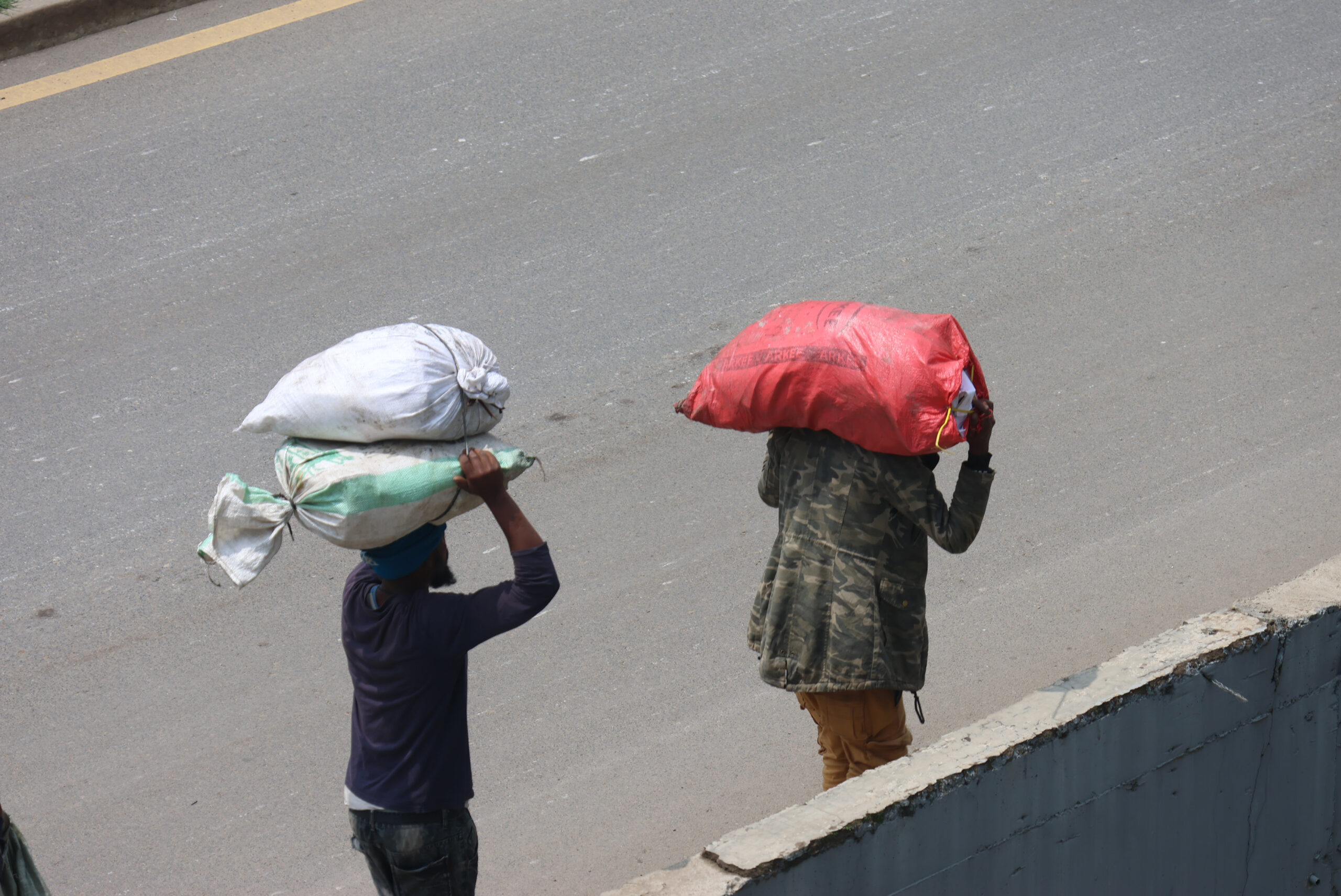
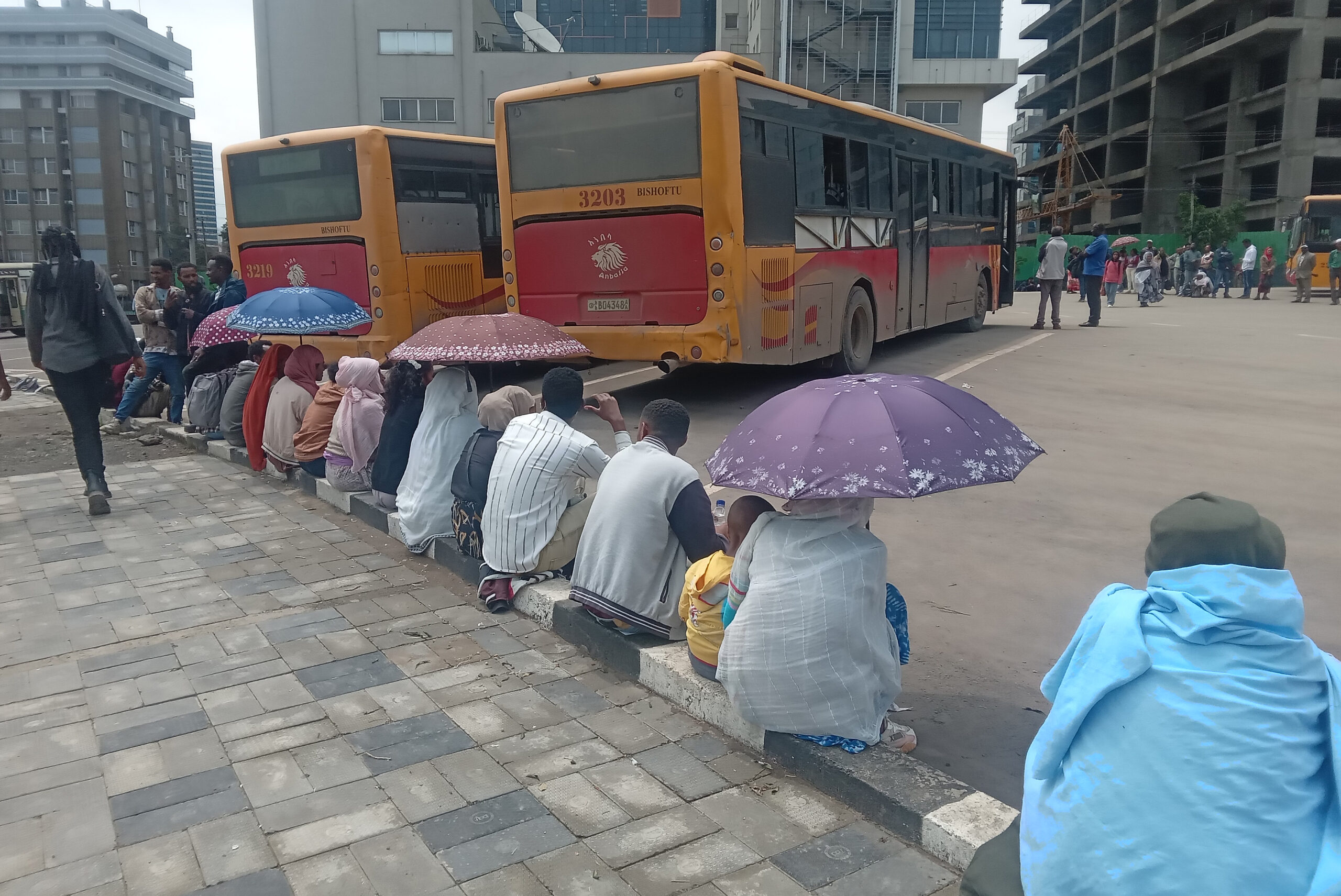
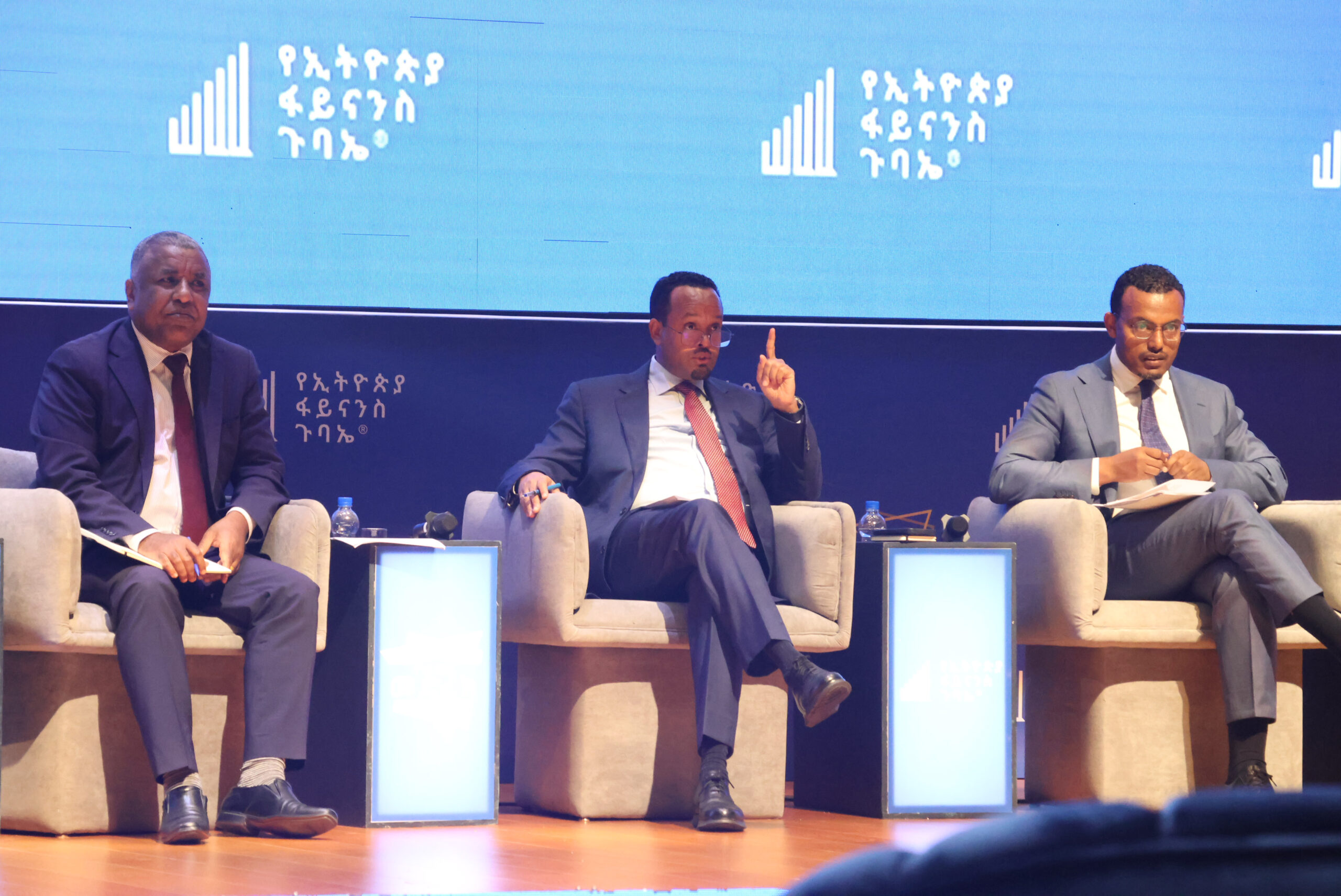
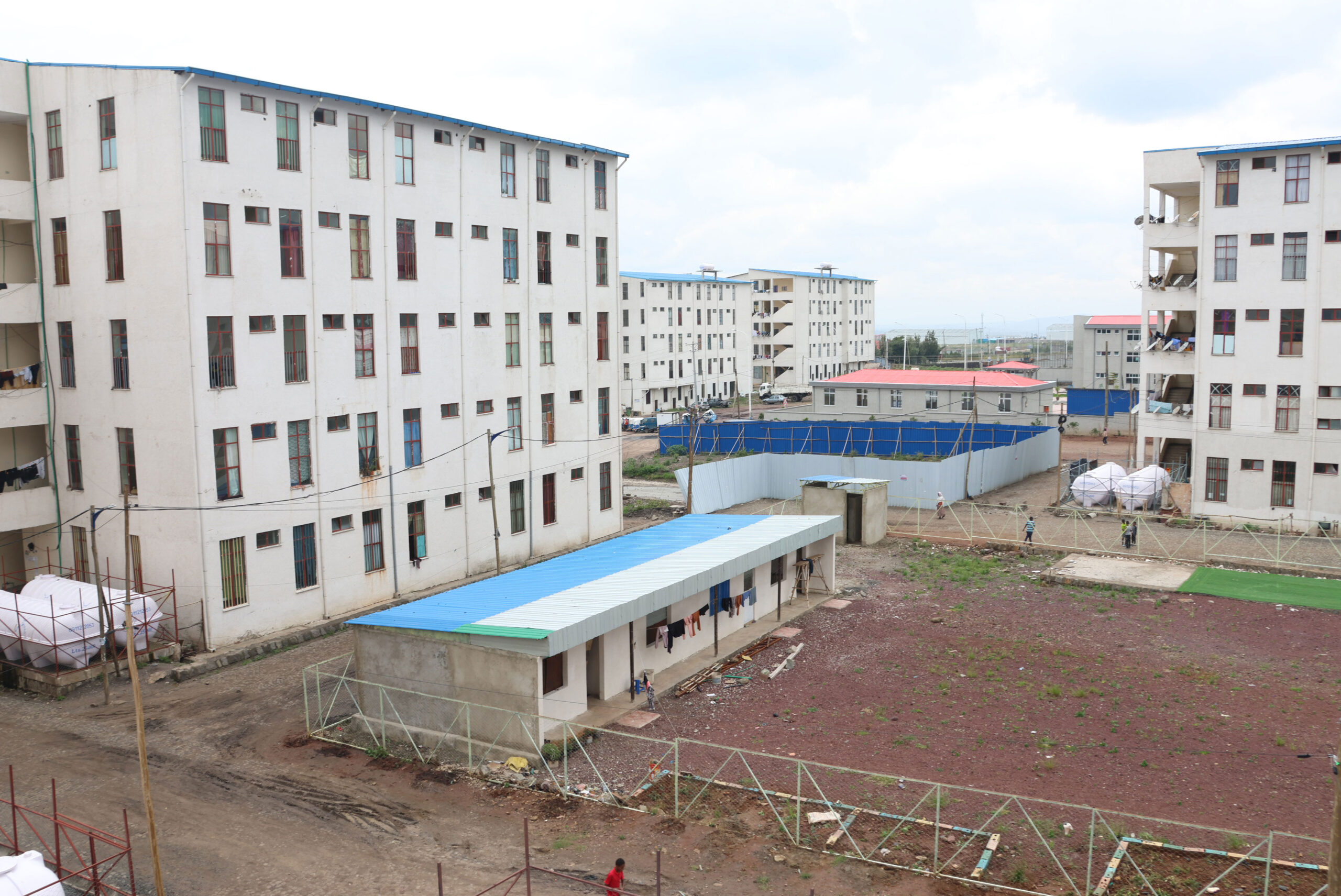
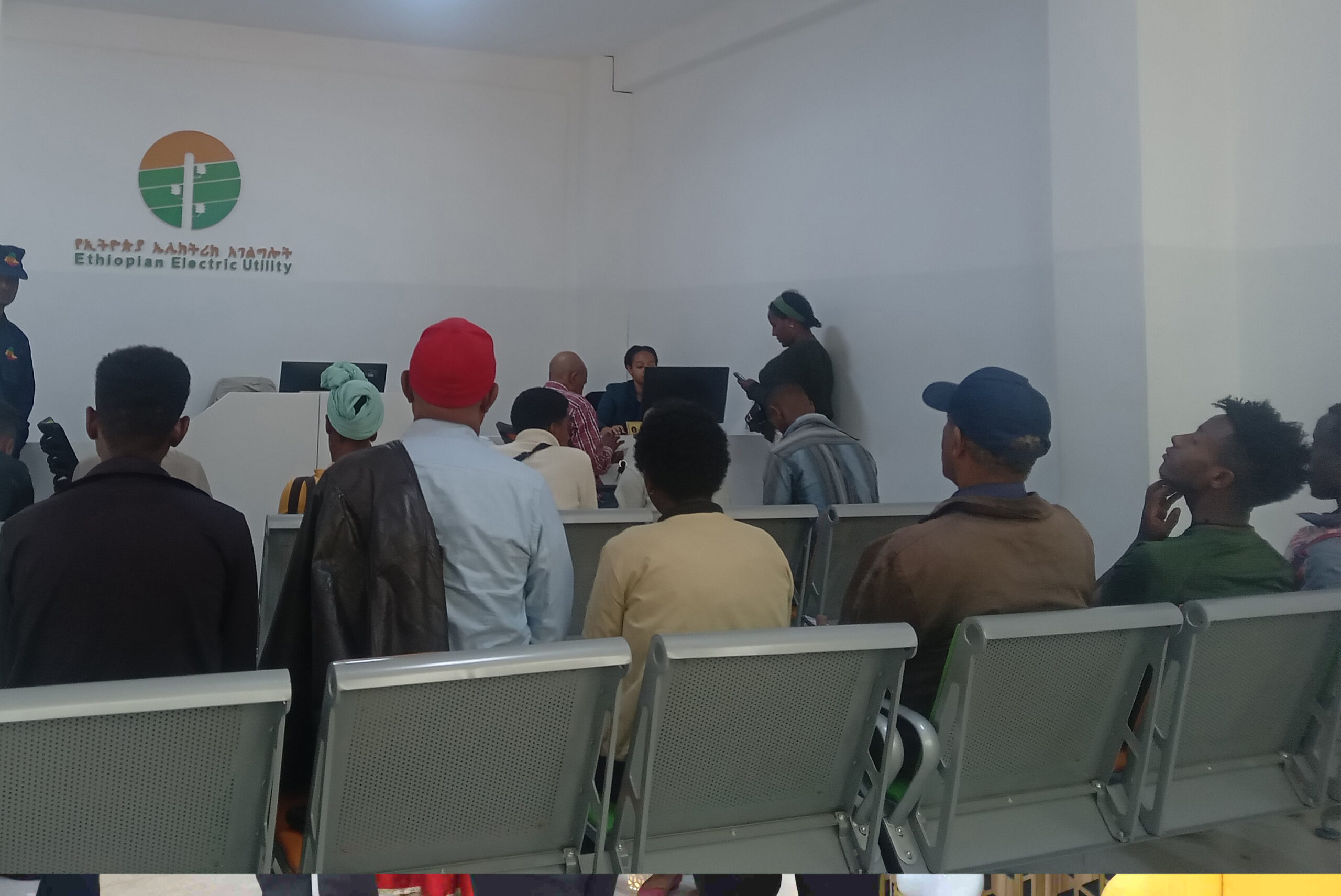
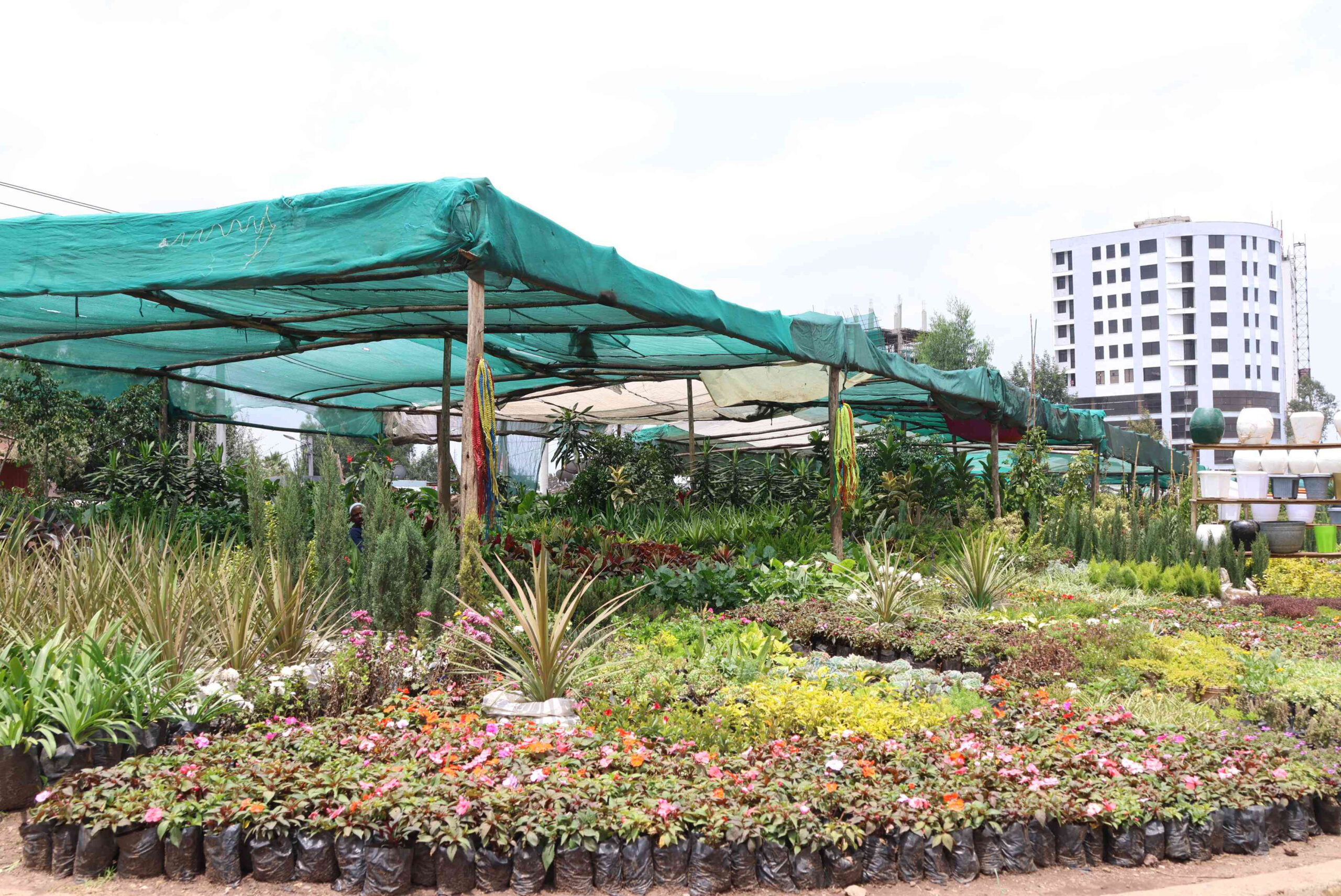
 Loading your updates...
Loading your updates...